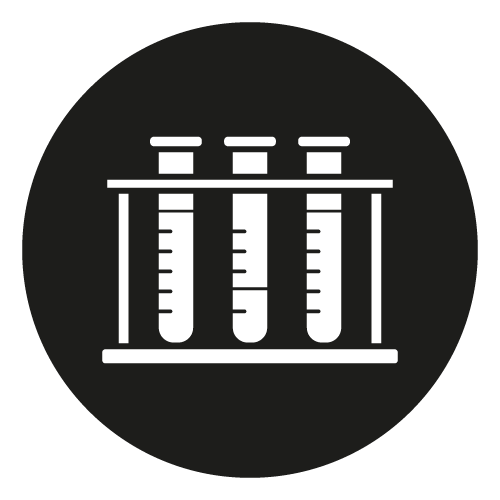Weed in our System
Published :
Jul 27, 2016
Categories :
Cannabis news
• Medical cannabis

Testing for THC is becoming more commonplace as the use of cannabis continues to grow. Despite the myths and legends, how long does it actually last in our system? And how is THC tested for?
For many, smoking weed can be a daily occurrence. Whether this is for medicinal use or just recreational use it is becoming more frequent across all sectors of society. Given this increased use, there will often be scenarios where smoking marijuana will be tested for. Despite differing views and opinions on marijuana's place in the world, there is no escaping the fact that throughout most of the world its subsequent use is largely illegal.
With this in mind knowing how long weed stays in your system as a detectable substance can prove invaluable. Whilst there is no hard and fast rule here, there are some general rules of thumb that can be applied when calculating how long weed, or more importantly THC will remain in your system. THC is the specific component of weed that is tested for as this is what makes cannabis illegal, giving us the psychoactive properties.
How is THC Tested For?
 THC can be tested for in a number of ways, with some significantly more common than others. Urine, blood and saliva tests are all ways of detecting THC, whilst its presence can also be detected in hair follicles! It is worth noting at this point that THC binds to hair follicles for the longest time, whilst in remains detectable in your saliva for the least amount of time. The most common form of testing is via an urine test. It is one of the cheapest methods of detection and if you are a heavy cannabis smoker can be detected up to 90 days after your last use.
THC can be tested for in a number of ways, with some significantly more common than others. Urine, blood and saliva tests are all ways of detecting THC, whilst its presence can also be detected in hair follicles! It is worth noting at this point that THC binds to hair follicles for the longest time, whilst in remains detectable in your saliva for the least amount of time. The most common form of testing is via an urine test. It is one of the cheapest methods of detection and if you are a heavy cannabis smoker can be detected up to 90 days after your last use.
- Urine Test
As urine tested are often the most common, below is a rough guide to how long THC will remain detectable. Remember this is not a “one size fits all” approach. The length of time that weed remains in your system will depend entirely on you as a person and how frequently you smoke. Essentially though the more frequently you smoke the longer it stays detectable.
1 Time use 1 Week
2-4 Uses a week 11-18 Days
2-4 Uses a month 23-35 Days
5-6 Uses a week 33-48 Days
Daily Use 1-2 Months
Other Means of Testing
- Hair Follicles
As we mentioned earlier there are also a number of other ways to test for THC presence. Whilst THC can bind to the hair follicles for up to 90 days, this form of detection is not completely accurate and as a result is no often used.
- Blood Test
Again a form of testing that is not often used. Given that THC doesn't bind to the red blood cells for very long in comparison to the other forms of detection, casual use is incredibly difficult to detect.
- Saliva Test
A method commonly used by police for roadside drugs testing. If you've been out and smoked weed as part of your recreational activities THC can start to test positive roughly 1 hour after smoking and up to 12 hours thereafter. Not typically used by companies to test for marijuana use it is still one to be aware of, given the focus on drug driving.
How to Pass a Drugs Test?
 Honestly? The only sure fire way to pass a test for THC is to have allowed enough time for it to no longer be detectable in your system. There are many companies that claim their products can help cleanse your urine but none have proven results to back these claims. Depending on the test will depend on the time period required but if you take a urine test as the most frequently used test, simply drinking more fluids can help to some degree. Adding more liquid to your system and as a result expelling that liquid can help to flush things through, although again there is no guaranteed success to this method. If you know you are going to be tested as part of a routine check or part of a new job just allow yourself plenty of time above and beyond the guidelines, we have listed above. The ironic thing being that whilst a heavy cannabis smoker can test positive for THC up to 2 months after the last use, heroin users only test positive up to 3 days after the last use. Unfortunately, the damage that can be done to the human body is not proportionate to the length of time it can be detected.
Honestly? The only sure fire way to pass a test for THC is to have allowed enough time for it to no longer be detectable in your system. There are many companies that claim their products can help cleanse your urine but none have proven results to back these claims. Depending on the test will depend on the time period required but if you take a urine test as the most frequently used test, simply drinking more fluids can help to some degree. Adding more liquid to your system and as a result expelling that liquid can help to flush things through, although again there is no guaranteed success to this method. If you know you are going to be tested as part of a routine check or part of a new job just allow yourself plenty of time above and beyond the guidelines, we have listed above. The ironic thing being that whilst a heavy cannabis smoker can test positive for THC up to 2 months after the last use, heroin users only test positive up to 3 days after the last use. Unfortunately, the damage that can be done to the human body is not proportionate to the length of time it can be detected.






































